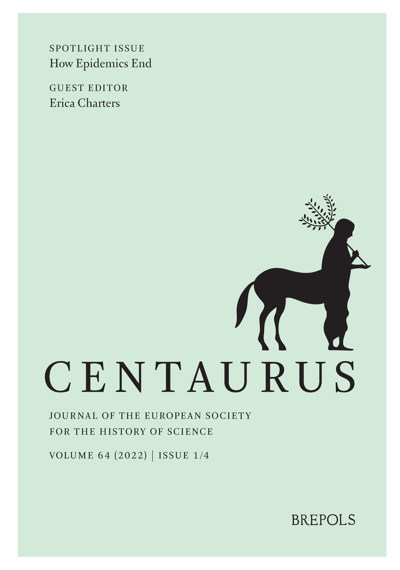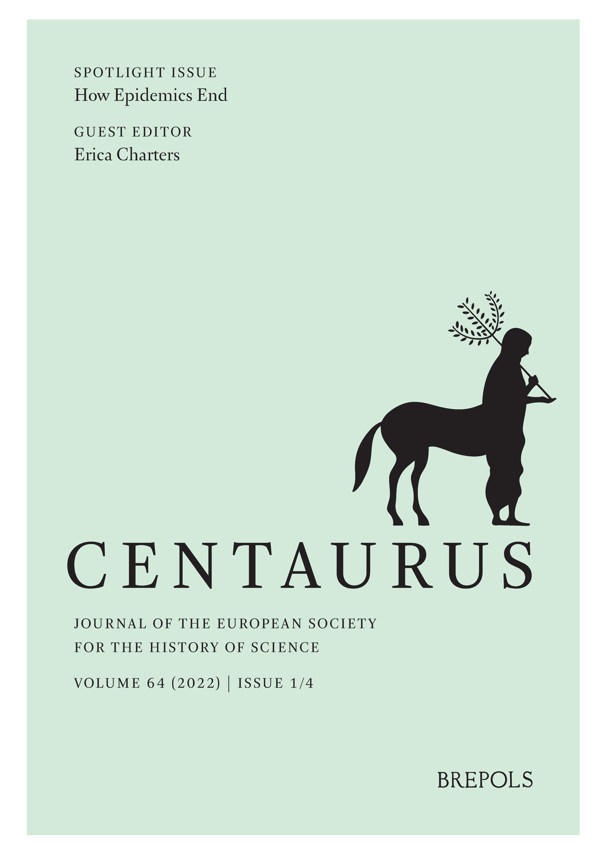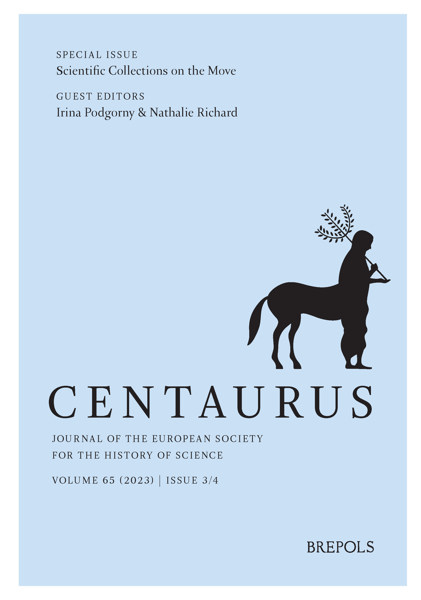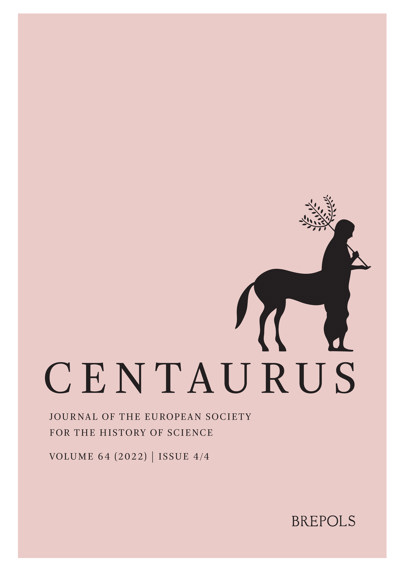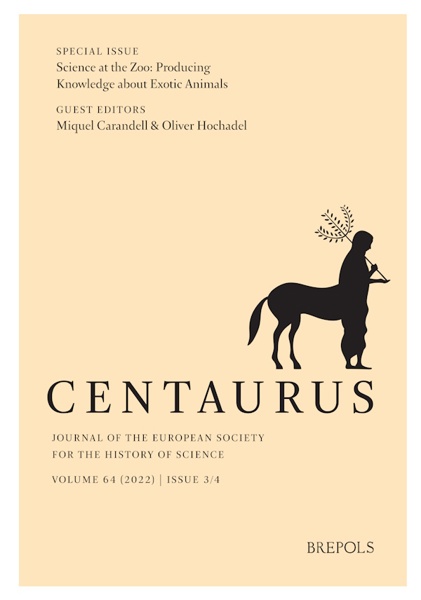
Centaurus. Journal of the European Society for the History of Science, Volume 64 (2022), Issue 1
Spotlight Issue: How Epidemics End, edited by Erica Charters
- Pages: 311 p.
- Size:178 x 254 mm
- Illustrations:13 col.
- Language(s):English
- Publication Year:2022
- € 87,50 EXCL. VAT RETAIL PRICE
- ISBN: 978-2-503-59852-9
- Paperback
- Available
- E-journal
- Available
Although policy-makers, administrators, media, and the general public now frequently make reference to the end of the COVID-19 epidemic, there is little understanding as to what this means or how this will be determined. This spotlight issue examines how epidemics end through multi-disciplinary case studies, analysing previous epidemics within their social and cultural contexts, as well as comparing different methodologies for gauging and ascertaining when an epidemic has ended.
Erica Charters is Professor of the Global History of Medicine in the History Faculty at the University of Oxford.
Editorial
Koen Vermeir, Theodore Arabatzis, Centaurus: Continuing as an Open Access Journal
Spotlight Issue: How Epidemics End, edited by Erica Charters
Erica Charters, Information, Expertise, and Authority: The Many Ends of Epidemics
Natalie M. Linton, Francesca Anne Lovell-Read, Emma Southall, Hyojung Lee, Andrei R. Akhmetzhanov, Robin N. Thompson, Hiroshi Nishiura, When Do Epidemics End? Scientific Insights from Mathematical Modelling Studies
Nils Christian Stenseth, Katharine Rose Dean, Barbara Bramanti, The End of Plague in Europe
Lori Jones, The Last Time That We Can Say The Plague Raged: Historicizing Epidemics
Paul Slack, End of a Pandemic? Contemporary Explanations for the End of Plague in Eighteenth-Century England
Xiaoping Fang, Ending Pandemics in Maos China: Politics, Technology, and Epidemiology
Atsuko Naono, The Last mile of Elimination of Malaria in Myanmar?
Jean Segata, Chikungunya in Brazil, An Endless Epidemic
Virginia Stewart Berridge, The Many Endings of Recent Epidemics: HIV/AIDS, Swine Flu 2009 and Policy
Cristiana Bastos, The Never-Ending Poxes of Syphilis, AIDS, and Measles
Christoph Gradmann, This is the End: Eradicating Tuberculosis in Modern Times
Clark Spencer Larsen, Fabian Crespo, Paleosyndemics: A Bioarchaeological and Biosocial Approach to Study Infectious Diseases in the Past
James L. A. Webb, Jr., Historical Epidemiology and the Single Pathogen Model of Epidemic Disease
Samuel Kline Cohn, Jr., Epidemics that End with a Bang
Paul Kelton, The End of Smallpox for Indigenous Peoples in the United States, 1898-1903: An Unnoticed Finale
Margaret Pelling, Mythological Endings: John Snow (1813-1858) and the History of American Epidemiology
Roderick Bailey, Ends and Means: Typhus in Naples, 1943-44
Arthur Rose, Closure and the Critical Epidemic Ending
Einar Wigen, The Multiple Temporalities of Epidemic Endings
Book reviews
Johan P. Mackenbach, A History of Population Health: Rise and Fall of Disease in Europe, by Dorothy Apedaile
Erica Fretwell, Sensory Experiments: Psychophysics, Race and the Aesthetics of Feeling, by Jorge Castro-Tejerina
Ursula Klein, Technoscience in History: Prussia, 1750-1850, by Thomas Morel
Andrea Strazzoni, Dutch Cartesianism and the Birth of Philosophy of Science: From Regius to 's Gravesande, by Pietro Daniel Omodeo
Laurent Mazliak and Rossana Tazzioli (eds), Mathematical Communities in the Reconstruction After the Great War 1918-1928: Trajectories and Institutions, by Jean-Guy Prévost
Kirsti Niskanen and Michael J. Barany (eds), Gender, Embodiment, and the History of the Scholarly Persona: Incarnations and Contestations, by Per Wisselgren
